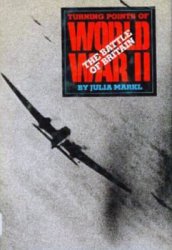With victory near in the North Aerican campaign by early 1943, a meeting of the Allied leaders seemed desirable to discuss the next steps to be taken against the Axis powers in the EUROPEAN THEATER of WORLD War II. President Franklin D. Roosevelt wanted the conference to include Soviet premier Joseph Stalin, but Stalin insisted that the military situation in the Soviet Union was

U. S. general George S. Patton, Jr., was military host of the Casablanca Conference. He is shown here with President Franklin D. Roosevelt at Casablanca on January 17, 1943. (Patton Museum of Cavalry and Armor, Fort Knox, Kentucky)
Too delicate for him to leave. British prime minister Winston Churchill and Roosevelt then decided to meet in the small seaside city of Casablanca in North Africa.
Roosevelt, Churchill, and their staffs met from January 13 to 23, 1943. Much of the conference was given over to debate between the British military, which wanted next to invade SiCiLY, and the smaller and less well-prepared American military contingent, which wanted to launch a cross-Channel invasion of German-occupied France as soon as possible and thus open a true second ERONT in Europe. The joint communique of January 23 indicated that Sicily was to be the next target for the Allies and said that the Battle oe the Atlantic would be given top priority in order to end the German U-boat threat to Allied shipping. Roosevelt and Churchill also pledged to fulfill Lend-Lease Act agreements with the Soviet Union and to launch the round-the-clock Combined Bomber Offensive against Germany. They agreed to put 30 percent of the American total war effort to operations in the Pacific THEATER, thus allowing the U. S. Navy to remain on the offensive against the Japanese.
Roosevelt and Churchill understood that Stalin would be angry about the decision not to open the second front by a cross-Channel invasion of France that would relieve German pressure on the Soviet Union. To help ease Stalin’s suspicions after his inability to deliver the cross-Channel invasion, and after agreement to the negotiated surrender of Vichy French forces in North Africa, President Roosevelt announced at a January 24 press conference that the Allied powers would accept nothing less than unconditional surrender from the Axis powers.




 World History
World History









